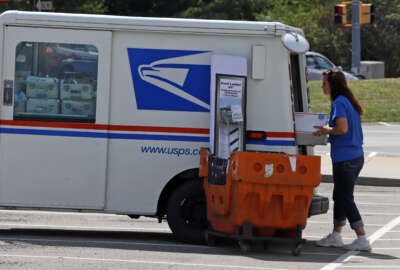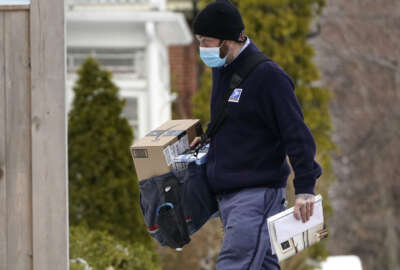USPS regulator hiring chief data officer to optimize performance
Postal Regulatory Commission Chairman Michael Kubayanda told senators that the board would work with the CDO to make more USPS performance data more readily...
The Postal Regulatory Commission will soon hire its first chief data officer and create a data governance board, in order to track the Postal Service’s delivery performance.
Commission Chairman Michael Kubayanda, nominated by President Joe Biden to serve for a second full term, told the Senate Homeland Security and Governmental Affairs Committee that the board would work with the CDO to make more USPS performance data more readily available to the public and available in machine-readable formats.
Kubayanda told senators the PRC is also reorganizing its staff to launch a small data analytics group to examine the USPS network, address bottlenecks and conduct specialized studies on postal costs.
Meanwhile, the commission is working on data visualization tools, including a beta-version dashboard tracking USPS performance on its website.
“These are all small-scale initiatives that I think we have a chance to eventually scale up, in order to hold the Postal Service more accountable,” Kubayanda said Thursday.
To complement these data investments, the commission recently expanded its IT and cybersecurity workforce, and is moving to the cloud in order to optimize security and achieve long-term savings. Kubayanda said the commission has sought money from the Technology Modernization Fund to support these projects.
Kubayanda lauded USPS for handling a surge of packages throughout the pandemic and handling a record volume of mail-in election ballots. However, he also noted customers reported “woeful performance in some areas,” and that quantitative evidence confirmed these claims.
The commission earlier this year issued cautionary but non-binding advisory opinions over USPS plans to introduce slower delivery standards for nearly 40% of first-class mail and nearly a third of small, lightweight parcels delivered via its First-Class Package Service.
The commission warned these changes would not result in much improvement, if any, to the Postal Service’s current financial condition, but could hurt customer satisfaction.
Kubayanda, in a separate advisory opinion, told USPS executives he understood the rationale of USPS to adapt to changes, such as a persistent decline in mail volume and a recent surge in packages. However, but warned that the agency’s plan “does not meet the needs of the moment,” and called the proposal “underdeveloped” and “disappointing.”
Kubayanda reiterated those concerns to the committee, saying the projected cost savings from both service changes were “meager compared to what the Postal Service hopes to achieve.”
To more effectively cut costs, he told senators USPS should commit to capital investments, such as plans to roll out a next-generation vehicle delivery fleet.
“That’s something where upfront investment, capital investment can lead to some savings down the line,” Kubayanda said.
USPS expects its new service standard for first-class mail will save the agency money by giving it enough time to move more mail through its ground transportation network of trucks, and rely less on contractors to fly mail across the country.
USPS already implemented the first-class mail standard, allowing up to five days for on-time delivery. The agency, however, will hold off on the new service standard for first-class packages until early next year.
The commission during Kubayanda’s tenure also completed a mandatory 10-year review of the USPS rate-setting system. As a result, the commission allowed USPS to set mail rates higher than inflation. USPS set higher prices starting Oct. 1, including raising the price of a first-class stamp to 58 cents.
Kubayanda said USPS should use that new rate-setting system to improve its long-term financial health.
“I think that it’s an opportunity to stabilize postal finances, or at least move the ball forward and improve political finances. I think that’s something they can capitalize on,” he said.
Kubayanda said the PRC’s new CDO and data analytics team will look at opportunities where USPS can improve or streamline its nationwide delivery network.
“I think there are opportunities for incremental improvements over time,” he said.
Copyright © 2025 Federal News Network. All rights reserved. This website is not intended for users located within the European Economic Area.
Jory Heckman is a reporter at Federal News Network covering U.S. Postal Service, IRS, big data and technology issues.
Follow @jheckmanWFED





